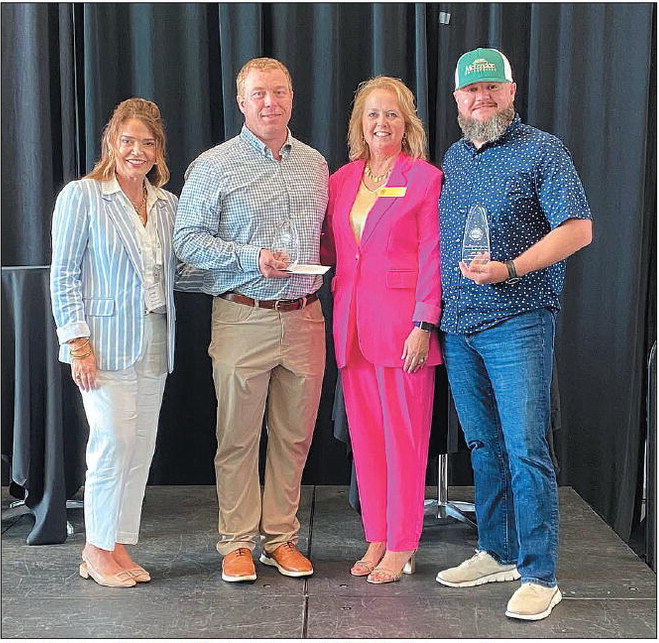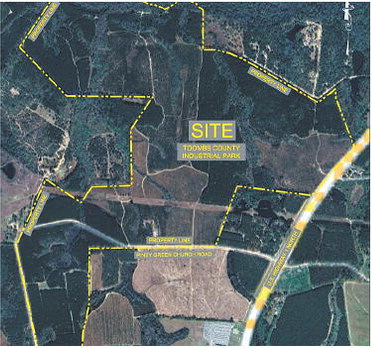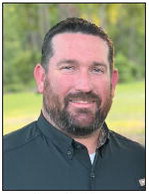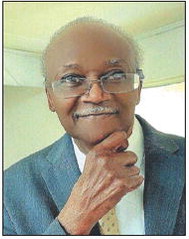Vote Ends MoCo Homestead Debate
mrandolphadvance@gmail.com
The possibility of enacting a floating homestead exemption within Montgomery County has been a hot topic among citizens and the Commission, as each party seeks a solution to the increase of property taxes. Commissioners finally made an official vote on the topic at their monthly meeting on Monday, November 13.
Commissioners agreed to craft their own suggested county home- continued from page
stead exemption during the regular monthly meeting on Monday, November 13, but found they could not agree on criteria for the act during a called meeting on Thursday, November 16.
The idea of creating a floating homestead exemption within the County was first introduced by citizens during public participation, as Amie Vassey informed the Commission that this type of legislation could protect homeowners from facing extreme increases in taxes caused by inflation and the rise in the housing market. The commissioners promised the citizens that they would learn more about the legislation to determine whether the exemption could be beneficial within the County. The leaders attended a training session in Cobb County to learn more about how the exemption worked in several counties who have enacted similar legislation.
At the request of the citizens, a citizens committee was also established to discuss the pros and cons of the exemption. The committee consisted of three categories of citizens – homeowners, large land tract owners, and business owners – as commissioners were skeptical about enacting the legislation due to fear that the tax burden would be shifted onto farmers and business owners, which would ultimately deter any new business from entering the county.
During the work session on Thursday, November 9, Commissioner Chad Kenney gave a report on each member of the committee’s final thoughts on the legislation. “We had two meetings on October 19 and October 26 – [Commissioner] Ginger [Morris] was with me on the first one and [Commissioner] Tim [Williamson] was with me on the second one,” he explained. “The reason for the second meeting was that the committee members wanted to have time to think about it before coming back and making their recommendations.”
He continued, “One member said we should move forward with the legislation. One did not make any comment. One did not see any value in anything related to homestead exemption, as there are tools already in place. One would like more information on both sides. One was not in favor doing any sort of homestead exemption. One did not see any advantage, as the county millage rate would have to increase. And one said they were concerned that this would not be fair and equal for everyone and would put the burden on the nonhomesteading properties.”
Kenney shared that the last recommendation did not deal directly with the issue of homestead exemption, but instead spoke on the county as a whole. “He did not comment either way on the homestead exemption, but what he is saying is kind of pushing that he is not for that,” Kenney said. “Basically, to summarize what he said, he believes the burden should not be given strictly to the taxpayers. All attempts should be made to develop revenues within the county. Evaluations should be completed yearly, which has not been done, and priority and attention needs to be pointed to the county and our resources to encourage growth and create needed revenue for the county.”
After hearing this report, Commission Chairman Leland Adams informed the commissioners that County Manager Brandon Braddy had suggested the group make an official vote on the matter during their monthly meeting on November 13. Adams also shared his thoughts on the issue, as he stated, "Right now, I think there are several homestead exemptions that are available for residents to choose from. Everyone needs to review those in the Tax Commissioners’ Office to determine what may be best for them. In addition to the regular $2,000 homestead exemption, there is an option that by a certain age, you can go to $4,000. There is a floating homestead exemption out there that is by age and household income, then there’s a few others that deal with military service and public service exemptions.”
During the meeting on November 13, the decision to move forward to work to draft the possible exemption was approved on a 3-2 vote, as Commissioners Ginger Morris, Tim Williamson, and Clarence Thomas supported the creation of the legislation, and Commissioners Chad Kenney and Leland Adams were in opposition of the action. Prior to the vote, each commissioner shared their thoughts on the exemption.
Morris began the discussion, as she explained, “I have prayed about it, I studied it, and I thought about the opportunity. Part of our duty is to do our due diligence to find out everything we can – the good, the bad, and the ugly – of anything that comes before us. For me, the last few months, we have listened to the citizens. I believe that the citizens committee has spoken. We have travelled to another county to get answers and spoken to the citizens again, gave the information we had, let the citizens committee learn what we had learned and heard from them. I believe all of that has been helpful for us because I think it is important for us to see all aspects of things.”
She continued, “The first thing I will tell you is when we are given an opportunity where we can listen to the citizens and get information, I believe that when we have that opportunity, we should listen to the citizens and if at all possible, come to some type of compromise. I don’t think we have much of that anymore in our country, and I think it’s important that we move in that direction. But at the same time, I think it is critical for us to make sure we are maintaining the functions and fiduciary responsibilities, as well as meeting the needs of our citizens and of this county. We also have to make sure that we are solvent as a county because there are certain needs that you have to meet as a county; when you cannot meet those needs, you are no longer a county.”
“Given all of that which I have looked at, listened to, and studied up on, I think we should move forward on the exemption,” Morris told her fellow commissioners. “I believe there is a middle ground. We have talked to the citizens and we have said to them that we know that some type of inflationary cap will have to be built in, [and] that there may be other things to do. But we can also have the opportunity to do it for a sustainable period of time and revisit it when we want to.”
She emphasized that in moving forward, the Commission would need to put criteria in place that continue to balance the importance of the solvency of the county and the desire of the citizens.
Kenney rebutted Morris with his thoughts, as he stated that creating a homestead exemption would harm the county as a whole rather than help the county. “We’ve spent a ton of time on this, and my biggest problem with the whole thing is the inequability of the whole process,” he explained. “A lot of the counties that have installed this are having issues with it now – we learned that in one of our legislative meetings that we had. This is a big issue in the state; down the road, you’re going to see people living in houses with the same value and paying different amounts of taxes. My conservative values believe that’s not fair, everyone should be paying their fair share.”
He added, “The main thing is that the attempt of the Georgia tax code is to use it as a fair market value of the property, so everything is based off of that. If you start getting off of that, you are going to have inequability. There are already homestead exemptions in place for people over 65 and lower household income, and other groups. I think there are enough homestead exemptions out there that can cover a lot of this. From the citizens committee, that was one of the big points that was discussed.”
According to Kenney, to fix the issue of high property taxes, the burden of funding the county must be transferred from property taxes to sales tax and business revenue, which he said must come from growth of commerce within the county.
Williamson followed Kenney, as he shared that for most of the discussion, he was not in favor of the possibility of the exemption, but could entertain crafting one to help the population within the county in need. “I’ve been really against it the whole time just because of what I think it’s going to do to the whole county. But, if you look at the ones that are in need of it – the lower income, the seniors in the county – I would be open to tailoring something for the ones that are in more of a need,” he commented.
Adams spoke again of his disapproval of creating a county homestead exemption, as he emphasized that the groups which a tailored exemption would affect are the same groups which exemptions are already in place to help.
“It’s like you’re between a rock and a hard place – you want to do something but then, you’re afraid its going to hurt someone else,” Thomas remarked. “It takes so much money to run this county. You have to get it from somewhere. I know how it is to struggle – I haven’t always had it easy – but I do know that God makes a way out of no way. Would I like to compromise a little bit? Yeah, but not too much, but I don’t know what that would mean to be honest with you.”
The vote was taken immediately after discussion, and a called meeting was soon set up to discuss drafting the legislation.
Called Meeting
During the called meeting, Commissioner Ginger Morris suggested that the created homestead exemption be for those 62 years of age and older, as well as those below the state poverty line, which is $40,000 for household income. The group discussed the matter, agreeing to change the age requirement from 62 to 65 and the income requirement from below $40,000 to below $30,000 per household.
Disagreements arose in the discussion of whether retirement and other benefits would be counted in the $30,000 income requirement, as commissioners were split on the concept. Some also emphasized that the exemption that was being crafted was already available for citizens to take advantage of, making the new legislation unnecessary.
After around an hour of discussion, commissioners agreed a unanimous decision regarding the matter would not be possible, and therefore, crafting the exemption would not succeed.
Morris encouraged the Commission that if they were not going to create a new exemption, the exemptions already available needed to be shared more, as many individuals did not know anything about them. Adams encouraged citizens to visit the county Tax Commissioner office to learn more about the exemptions and ask any questions they may have.






